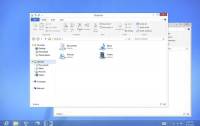search:present tenses相關網頁資料
present tenses的相關文章
present tenses的相關公司資訊
present tenses的相關商品
瀏覽:557
日期:2024-04-29
There are four present tense forms in English: Present simple: I work Present continuous: I am working Present perfect: I have worked Present perfect continuous: I have been working We use these forms: to talk about ......
瀏覽:517
日期:2024-04-24
The PRESENT PERFECT TENSE is formed with a present tense form of "to have" plus the past participle of the verb (which can be either regular or irregular in ......
瀏覽:369
日期:2024-04-25
Complete description of the Present Continuous verb tense. ( A.k.a. Present Progressive )...
瀏覽:1116
日期:2024-04-28
Complete description of the Simple Present verb tense....
瀏覽:669
日期:2024-04-25
Future progressive ... The present tense is used to describe events that are scheduled (by nature or by ......
瀏覽:646
日期:2024-04-23
There are two tenses in English – past and present. The present tenses in
English are used: to talk about the present to talk about the future to talk about the
past ......
瀏覽:423
日期:2024-04-26
pres·ent tense (prĕz′ənt) n. The verb tense expressing action in the present time, as in She writes; she is writing. Thesaurus Antonyms Related Words Synonyms Legend: Noun 1. present tense - a verb tense that expresses actions or states at the time of spe...
瀏覽:342
日期:2024-04-28
Your ESL/EFL Test Package will help you learn new phrases, idioms, expressions and English grammar structures every single day. And you won't even have to cram any grammar rules or vocabulary words into your head. Instead, you will be absorbing bits and ....








































